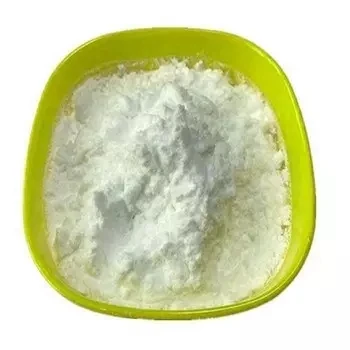Warning: Undefined array key "title" in /home/www/wwwroot/HTML/www.exportstart.com/wp-content/themes/1198/header.php on line 6
Warning: Undefined array key "file" in /home/www/wwwroot/HTML/www.exportstart.com/wp-content/themes/1198/header.php on line 7
Warning: Undefined array key "title" in /home/www/wwwroot/HTML/www.exportstart.com/wp-content/themes/1198/header.php on line 7
Warning: Undefined array key "title" in /home/www/wwwroot/HTML/www.exportstart.com/wp-content/themes/1198/header.php on line 7
- Afrikaans
- Albanian
- Amharic
- Arabic
- Armenian
- Azerbaijani
- Basque
- Belarusian
- Bengali
- Bosnian
- Bulgarian
- Catalan
- Cebuano
- China
- China (Taiwan)
- Corsican
- Croatian
- Czech
- Danish
- Dutch
- English
- Esperanto
- Estonian
- Finnish
- French
- Frisian
- Galician
- Georgian
- German
- Greek
- Gujarati
- Haitian Creole
- hausa
- hawaiian
- Hebrew
- Hindi
- Miao
- Hungarian
- Icelandic
- igbo
- Indonesian
- irish
- Italian
- Japanese
- Javanese
- Kannada
- kazakh
- Khmer
- Rwandese
- Korean
- Kurdish
- Kyrgyz
- Lao
- Latin
- Latvian
- Lithuanian
- Luxembourgish
- Macedonian
- Malgashi
- Malay
- Malayalam
- Maltese
- Maori
- Marathi
- Mongolian
- Myanmar
- Nepali
- Norwegian
- Norwegian
- Occitan
- Pashto
- Persian
- Polish
- Portuguese
- Punjabi
- Romanian
- Russian
- Samoan
- Scottish Gaelic
- Serbian
- Sesotho
- Shona
- Sindhi
- Sinhala
- Slovak
- Slovenian
- Somali
- Spanish
- Sundanese
- Swahili
- Swedish
- Tagalog
- Tajik
- Tamil
- Tatar
- Telugu
- Thai
- Turkish
- Turkmen
- Ukrainian
- Urdu
- Uighur
- Uzbek
- Vietnamese
- Welsh
- Bantu
- Yiddish
- Yoruba
- Zulu
Ноя . 06, 2024 19:52 Back to list
Exploring Xylitol as a Sweetener for a Keto Lifestyle and Its Benefits
Xylitol and Its Role in a Keto Lifestyle
In recent years, the ketogenic diet has surged in popularity, appealing to those looking to lose weight and improve their overall health. Central to this dietary approach is the significant reduction of carbohydrates, which encourages the body to enter a state of ketosis—where it burns fat for fuel instead of carbohydrates. As individuals adopt this lifestyle, finding suitable sugar substitutes becomes crucial. One popular choice among keto adherents is xylitol, a sugar alcohol with unique benefits and some caveats.
Xylitol is a naturally occurring sugar alcohol found in small quantities in fruits and vegetables. It has gained recognition for its sweetening properties, similar to those of regular sugar but with several advantages that make it suitable for keto diets. With approximately 2.4 calories per gram, xylitol contains about 40% fewer calories than sugar. More importantly, it has a very low glycemic index (GI) score of zero, meaning it does not raise blood sugar levels, making it an ideal sugar substitute for those managing their carbohydrate intake.
Xylitol and Its Role in a Keto Lifestyle
Furthermore, xylitol is known for its dental benefits. Studies have shown that xylitol can inhibit the growth of harmful bacteria in the mouth, reducing the risk of cavities and promoting oral health. This makes it an attractive option for those looking to maintain not just weight loss and metabolic health but also their dental hygiene while on a keto regime.
xylitol and keto

Despite these advantages, it’s essential to consume xylitol in moderation. While it is generally safe for human consumption, excessive intake can lead to gastrointestinal discomfort, including bloating, gas, or diarrhea. This is due to the fact that xylitol, like other sugar alcohols, is not fully absorbed by the body and can ferment in the intestines. Therefore, it’s advisable for individuals new to xylitol to start with small doses and gradually increase their intake to monitor tolerance levels.
Another critical consideration is that xylitol is toxic to dogs. Even a small amount can cause hypoglycemia and potentially lead to liver failure in pets. Therefore, those incorporating xylitol into their kitchen should be mindful of their pets' safety and ensure that products containing this sugar alcohol are stored securely out of reach.
When following a keto diet, one must also remain vigilant about ingredient labels. Many products marketed as sugar-free may still contain other high-carb sweeteners or additives that could impact ketosis. While xylitol is generally keto-friendly, it is important to use pure xylitol and combine it with other low-carb ingredients to maintain dietary goals.
Incorporating xylitol into a ketogenic diet can be an effective strategy to manage sugar cravings, reduce overall caloric intake, and promote oral health. However, like any dietary choice, it should be done thoughtfully and in moderation. As with any sweetener, monitoring individual response is key to a successful and healthy keto journey.
In conclusion, xylitol offers a sweet reprieve for those navigating the challenges of a ketogenic diet. With its low-calorie and low-GI profile, it stands out as a valuable tool in the quest for health and wellness. Embracing xylitol can allow keto dieters to indulge their sweet tooth without sacrificing their dietary objectives, ultimately contributing to a more enjoyable and sustainable low-carb lifestyle.
Latest news
-
Certifications for Vegetarian and Xanthan Gum Vegetarian
NewsJun.17,2025
-
Sustainability Trends Reshaping the SLES N70 Market
NewsJun.17,2025
-
Propylene Glycol Use in Vaccines: Balancing Function and Perception
NewsJun.17,2025
-
Petroleum Jelly in Skincare: Balancing Benefits and Backlash
NewsJun.17,2025
-
Energy Price Volatility and Ripple Effect on Caprolactam Markets
NewsJun.17,2025
-
Spectroscopic Techniques for Adipic Acid Molecular Weight
NewsJun.17,2025

